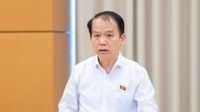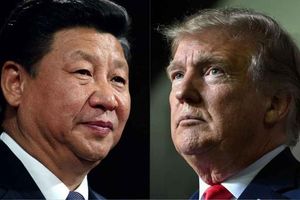On April 28, 2025, the National Assembly Standing Committee in Vietnam convened to discuss a significant draft law aimed at amending and supplementing various articles of the Law on Vietnamese Nationality. This legislative initiative has garnered attention for its potential to reshape the landscape of nationality and citizenship in Vietnam.
Minister of Justice Nguyen Hai Ninh presented a comprehensive summary of the draft law, emphasizing its necessity in aligning with the Party's guidelines and policies. He stated that the law is designed to facilitate more favorable conditions for foreigners and the Vietnamese diaspora seeking to navigate the complexities of naturalization and the return to Vietnamese nationality.
The draft law is centered around two major policies. The first policy focuses on amending and supplementing regulations related to naturalization in Vietnam. It aims to simplify the process for individuals with Vietnamese heritage—specifically those whose biological parents or grandparents are Vietnamese citizens—as well as for foreign investors, scientists, and experts wishing to obtain Vietnamese nationality.
The second policy addresses the return to Vietnamese nationality for those who have previously lost it. This aspect of the law is particularly significant for many Vietnamese expatriates who may wish to reconnect with their roots and reclaim their citizenship.
The draft legislation comprises three articles and proposes to amend and supplement 19 out of 44 articles in the existing Law on Vietnamese Nationality, while also repealing one article altogether. Among the notable changes is the stipulation that individuals who wish to participate in certain government roles must possess only Vietnamese nationality and be permanent residents of Vietnam. This regulation is intended to safeguard national interests and ensure political security.
Specifically, the law states that those nominated, elected, approved, or appointed to positions within state agencies and socio-political organizations, as well as participants in the armed forces, must hold only Vietnamese nationality. However, exceptions may be made in special cases as determined by the Government.
Chairman of the Law and Justice Committee, Hoang Thanh Tung, expressed strong support for the necessity of the law, noting that it aligns with the government's report. He also highlighted the importance of adhering to a streamlined process for the law's construction and promulgation, indicating that the draft law has met all required documentation standards for review by the National Assembly Standing Committee.
During the committee's review, it was reiterated that the proposed amendments are largely consistent with the 2013 Constitution of Vietnam. The committee believes that the regulations outlined in the draft law will serve as a vital legal foundation for allowing Vietnamese citizens abroad to reclaim their nationality and enjoy the rights associated with it.
As part of the discussion, several committee members voiced their opinions on the proposed amendments. Some supported the notion of maintaining a singular national identity for individuals in public service roles, while others cautioned against overly restrictive measures that might hinder the recruitment of talented individuals from diverse backgrounds.
In particular, the committee recommended that the Government be tasked with defining specific conditions under which individuals could retain foreign nationality while also being granted Vietnamese nationality. This approach seeks to balance the need for national security with the practical realities of global citizenship.
Moreover, the committee emphasized the importance of transparency in the legal provisions concerning nationality. Vice Chairman of the National Assembly, Nguyen Khac Dinh, underscored the necessity for the law to clearly outline the basic principles and conditions for individuals wishing to regain Vietnamese nationality, ensuring that these provisions are both clear and flexible.
As the discussions progressed, it became evident that the proposed law is not only a response to the needs of the Vietnamese community abroad but also a strategic move to enhance national unity and attract high-quality human resources to contribute to Vietnam's development in the modern era.
In conclusion, the draft law on Vietnamese nationality represents a significant step towards modernizing the country's approach to citizenship. By addressing both the naturalization process for foreigners and the return of citizenship for those who have lost it, the Vietnamese government is taking proactive measures to foster inclusivity and strengthen ties with its global diaspora.




